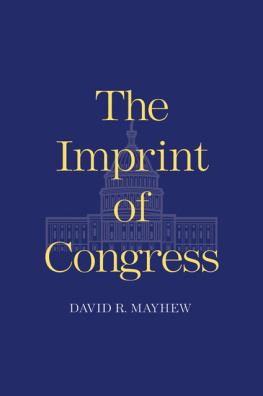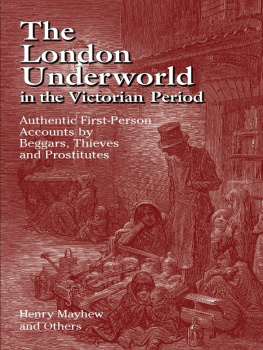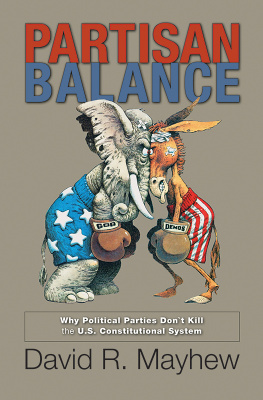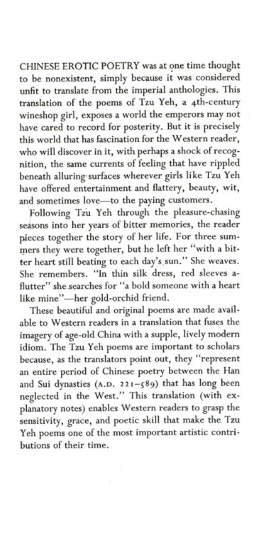Mayhew - The Imprint of Congress
Here you can read online Mayhew - The Imprint of Congress full text of the book (entire story) in english for free. Download pdf and epub, get meaning, cover and reviews about this ebook. City: United States, year: 2018, publisher: Yale University Press, genre: Politics. Description of the work, (preface) as well as reviews are available. Best literature library LitArk.com created for fans of good reading and offers a wide selection of genres:
Romance novel
Science fiction
Adventure
Detective
Science
History
Home and family
Prose
Art
Politics
Computer
Non-fiction
Religion
Business
Children
Humor
Choose a favorite category and find really read worthwhile books. Enjoy immersion in the world of imagination, feel the emotions of the characters or learn something new for yourself, make an fascinating discovery.
The Imprint of Congress: summary, description and annotation
We offer to read an annotation, description, summary or preface (depends on what the author of the book "The Imprint of Congress" wrote himself). If you haven't found the necessary information about the book — write in the comments, we will try to find it.
Mayhew: author's other books
Who wrote The Imprint of Congress? Find out the surname, the name of the author of the book and a list of all author's works by series.
The Imprint of Congress — read online for free the complete book (whole text) full work
Below is the text of the book, divided by pages. System saving the place of the last page read, allows you to conveniently read the book "The Imprint of Congress" online for free, without having to search again every time where you left off. Put a bookmark, and you can go to the page where you finished reading at any time.
Font size:
Interval:
Bookmark:
The Henry L. Stimson Lectures Series

The Henry L. Stimson Lectures at the Whitney and Betty MacMillan Center for International and Area Studies at Yale.
Published with assistance from the foundation established in memory of James Wesley Cooper of the Class of 1865, Yale College.
Copyright 2017 by Yale University. All rights reserved. This book may not be reproduced, in whole or in part, including illustrations, in any form (beyond that copying permitted by Sections 107 and 108 of the U.S. Copyright Law and except by reviewers for the public press), without written permission from the publishers.
Yale University Press books may be purchased in quantity for educational, business, or promotional use. For information, please e-mail (U.K. office).
Set in Adobe Garamond and Gotham type by IDS Infotech Ltd.
Printed in the United States of America.
ISBN 978-0-300-21570-0 (hardcover : alk. paper)
Library of Congress Control Number: 2016955268
A catalogue record for this book is available from the British Library.
This paper meets the requirements of ANSI/NISO Z39.481992 (Permanence of Paper).
10 9 8 7 6 5 4 3 2 1
Contents
To my wife Judith
and our dog
Tiger
Acknowledgments
This book started as a conference paper and grew. Many thanks to Gregory Wawro and Ira Katznelson for posing a question to paper writers for a conference on Congress and History held at Columbia University on June 2122, 2013. That charge jogged me to action. The question was: Can Congress as a core institution of American democracy capably address the major challenges confronting the nation at any given period? A shorter version was Can Congress govern? I took the phrase at any given period to invite a canvass of history. A paper ensued. It grew longer in a version published in Studies in American Political Development in October 2015, where the title was Congress as a Handler of Challenges: The Historical Record. This book is a reconfiguration and expansion of the project. Thanks to the Stimson Lectures at Yale University, and to Yale University Press, for allowing it. Matching the reconfiguration, there is a fresh title, The Imprint of Congress. The discursive freedom that a book affords, compared with a conference paper or a journal article, is a considerable joy. Along the way, I have profited from advice from Richard Bensel, Sarah Binder, David Brady, Jacob Hacker, David Karol, Ira Katznelson, Joseph LaPalombara, Nuno Monteiro, William Nordhaus, Eleanor Powell, Eric Schickler, Ian Shapiro, Stephen Skowronek, Judith Swanson, Richard Valelly, Steven Wilkinson, and anonymous referees. Thanks to Charles Kromkowski for data he sent me a few years ago in an earlier cause. A visit to Jack Balkins class at the Yale Law School was bracing and rewarding. As always, thanks to the Yale University Library system. My research assistants, Matt Bettinger and John A. Dearborn, did valiant service in checking the manuscript at various phases for its sources and mistakes and in designing displays. Dearborn arranged the nine figures that appear in this work.
Introduction
What has been Congresss imprint on American society and life? I wrestle with this question in this book. It is a tough question, but, I believe, an interesting one. To address it, I lay out some rules of analysis and invite the reader to go along with them.
It is a distinctive question. There are alternative questions. Many are chestnuts of public affairs that I am not asking here: Has Congress been democratic or representative enough? Americans have not been fans of congressional performance.
American intellectualsjournalists, academics, and the resthave not been fans, either. There is a long tradition of critique.
A lineage of book titles tells the story: Congress at the Crossroads (1946), Congress on Trial (1949), The Deadlock of Democracy (very much about Congress, 1963), Obstacle Course on Capitol Hill (1964), The Sapless Branch (1964), Congress in Crisis (an analysis of the critique tradition rather than a critique itself, 1966), The American Way of Politics at the Breaking Point (very much about Congress, 1996), Fight Club Politics (2006), The Broken Branch (2006).
In this book, I sidestep this literature of critique. If you are expecting another work like that, stop right here. I sidestep it for three reasons. First, this literature tends to be driven by the aches, anxieties, and headlines of the day. Connections to a more general historical
Wilson set a style. In our own times, since the 1930s, a chronic backstory to the congressional critiques is that the policy aims of liberals or Democrats often falter on Capitol Hill. There must be a reason. Culprit processes are found. It is a short step to the view: My party cant get what it wants, so the system must be broken. A liberal president facing a conservative Congress has become a sure bet, even if not the only bet, for system-is-broken stories. In general, a blend of the positive and the normative can pose analytic confusion. From Woodrow Wilson onward, the critique literature is best seen as a cross between, on the one hand, professional social science, and, on the other hand, a nonstop participation in national ideological warfare.
But my third reason is the chief one. I want to examine a different terrain. The critique literature tends to dwell on aspirations, processes, and optics: On the latter front, ugliness and spectacle are some of its recent terms.or results of congressional activitiesat least some of them. It is a consequentialist enterprise. Steer past the policy aspirations and drives, the internal processes, the wrangling, the repellent sausage-making or non-making as legislative ideas are considered, and where are we? Beyond that, steer past the churn of roll calls and the notching of victories and losses. Processes, so what? What are the effects of passing or not passing laws, of Congresss operations in general?
I construe this quest for effects as an investigation into deep history. I go back to the very beginning of the country in 1789. I sift Congresss effects on American society from those of the presidency, insofar as that is possible, and I cradle the analysis in the experience of peer countries. Through these moves, I look for distinctive congressional effects across two and a quarter centuries. This makes for a loose speculative analysis. It requires many personal judgments. There is nothing statistical about it. Also, the analysis cannot say much about the present day. I stay away from policy excitements that have flashed into prominence very recently and thus do not have much of an analyzable arc of life. As for the future, all inferences from history are of course uncertain. Doomsters are sometimes right, and who knows? Todays congressional doomsters may be right too. But in framing the past I aim for a perspective that is worth consulting at the present time.
What has been Congresss distinctive imprint? I use the term imprint advisedly. I mean to connote effects that are longer-lasting and more deeply embedded than would be signaled by, say, the term impact. I mean a congressional imprint on such states of affairs as the launching of the country in the 1790s, the coming of the regulatory state, the rise of the United States to world power, the building of the welfare state, the postWorld War II civil rights revolution, the onset of economic neoliberalism around 1980, and, in the past few decades, the management of federal debt and deficits. Perhaps we all have curbstone takes on big topics like these, but I believe that they are worth addressing square-on. Also, I believe that they can be addressed reasonably well at this time. This book could not have been written thirty years agoor, if written, it would have relied on that times conventional wisdoms about history, many of which have since flagged, and it would have been much scantier. Recent decades have brought a wonderful efflorescence of historical scholarship that I am able to call on for this project. The economic history alone is priceless.
Next pageFont size:
Interval:
Bookmark:
Similar books «The Imprint of Congress»
Look at similar books to The Imprint of Congress. We have selected literature similar in name and meaning in the hope of providing readers with more options to find new, interesting, not yet read works.
Discussion, reviews of the book The Imprint of Congress and just readers' own opinions. Leave your comments, write what you think about the work, its meaning or the main characters. Specify what exactly you liked and what you didn't like, and why you think so.












